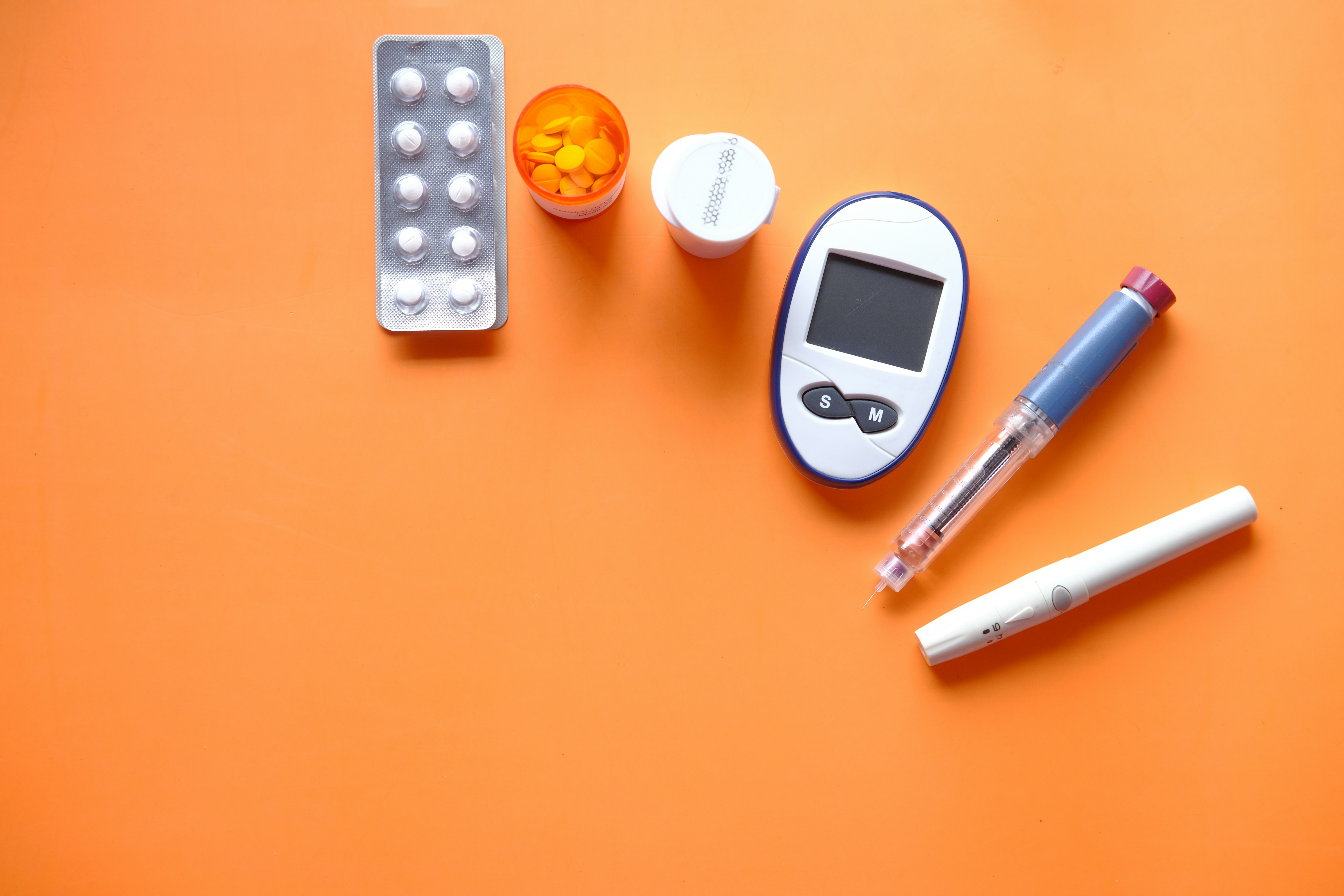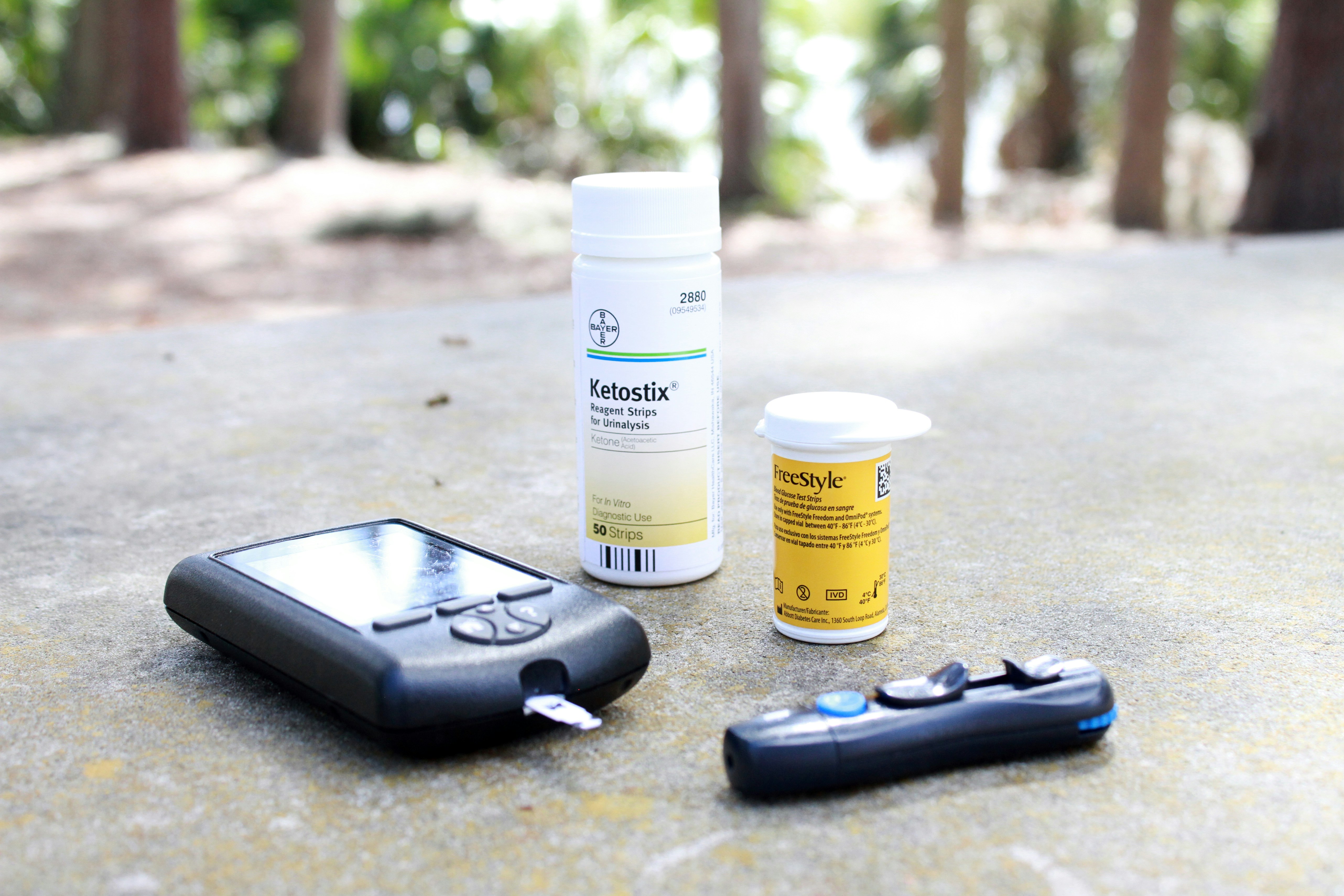Let’s discover the causes, symptoms, effects, and management techniques for high fasting blood sugar levels in this comprehensive guide. Learn how insulin resistance, diabetes, medications, stress, and lifestyle factors can influence blood sugar levels. Find out how to prevent high fasting blood sugar and when to seek medical help.
If you’ve ever wondered about the reasons behind high fasting blood sugar levels, look no further. This article aims to provide you with valuable insights into the factors that can cause your blood sugar levels to rise during fasting periods. Whether you’re curious about the role of hormones, the effects of stress, or the impact of certain medications, this comprehensive guide will shed light on the subject. So, grab a cup of tea, sit back, and let’s explore the fascinating world of high fasting blood sugar levels together.
What is High Fasting Blood Sugar?
Definition of high fasting blood sugar
High fasting blood sugar refers to elevated levels of glucose (sugar) in the bloodstream after a period of fasting. Fasting blood sugar is typically measured when you haven’t eaten for at least 8 hours. Elevated fasting blood sugar levels may indicate insulin resistance, uncontrolled diabetes, or other underlying health conditions.
Normal range of fasting blood sugar
In general, a normal fasting blood sugar level is considered to be between 70 and 99 milligrams per deciliter (mg/dL). However, this range may vary slightly depending on the testing laboratory and individual circumstances. It’s important to consult with a healthcare professional to determine the specific target range for your fasting blood sugar.
When fasting blood sugar levels are considered high
Fasting blood sugar levels are considered high when they consistently measure above 100 mg/dL. A diagnosis of prediabetes is often made if fasting blood sugar levels range between 100 and 125 mg/dL, and a diagnosis of diabetes is typically confirmed if fasting blood sugar levels consistently measure 126 mg/dL or higher on multiple occasions.
Click Here to discover how to decrease your blood sugar levels significantly and long-term.
Causes of High Fasting Blood Sugar
Insulin resistance
Insulin resistance is a condition where cells become less responsive to the effects of insulin, a hormone necessary for the regulation of blood sugar levels. When insulin resistance occurs, the body may produce more insulin to compensate, leading to high fasting blood sugar levels. Factors such as obesity, sedentary lifestyle, and certain genetic factors can contribute to the development of insulin resistance.
Uncontrolled diabetes
Individuals with diabetes may experience high fasting blood sugar levels if their condition is not well-managed. In type 1 diabetes, the body does not produce enough insulin, while in type 2 diabetes, the body cannot effectively use the insulin it produces. Poor medication management or lack of adherence to a diabetes management plan can lead to elevated fasting blood sugar levels.
Medication side effects
Certain medications, such as corticosteroids and some antipsychotics, can increase blood sugar levels and contribute to high fasting blood sugar. It’s important to consult with your healthcare provider if you suspect that your medication may be affecting your blood sugar levels.
Stress and cortisol levels
Stress can elevate blood sugar levels by triggering the release of stress hormones, such as cortisol. Chronic stress can lead to prolonged elevated fasting blood sugar levels. Finding effective stress management techniques, such as exercise, meditation, or engaging in hobbies, can help lower stress levels and reduce the impact on blood sugar levels.
Lack of physical activity
Physical inactivity can contribute to high fasting blood sugar levels by reducing insulin sensitivity and impairing glucose uptake by muscles. Regular physical activity helps improve insulin sensitivity, allowing for better glucose control. Aim for at least 150 minutes of moderate-intensity exercise per week to help manage your blood sugar levels.
Inadequate sleep
Insufficient or poor-quality sleep can disrupt the body’s regulation of blood sugar levels, leading to high fasting blood sugar. Lack of sleep has been linked to insulin resistance, impaired glucose tolerance, and increased appetite. Establishing a consistent sleep schedule and practicing good sleep hygiene can support healthy fasting blood sugar levels.
Dietary factors
Certain dietary factors can contribute to high fasting blood sugar levels. Consuming an excessive amount of sugary or refined carbohydrate-rich foods without adequate fiber and protein can cause blood sugar levels to spike. Additionally, portion sizes, meal timing, and overall diet composition play a role in maintaining stable fasting blood sugar levels. Working with a registered dietitian can help you develop a healthy eating plan that promotes better blood sugar control.
Symptoms and Effects of High Fasting Blood Sugar
Common symptoms
Individuals with high fasting blood sugar levels may experience symptoms such as frequent urination, increased thirst, unexplained weight loss, blurred vision, fatigue, slow-healing wounds, and frequent infections. If you are experiencing any of these symptoms, it is important to consult with your healthcare provider for further evaluation.
Long-term effects on health
When high fasting blood sugar levels are left uncontrolled over time, they can lead to various chronic health conditions. These may include an increased risk of developing type 2 diabetes, cardiovascular disease, kidney damage, nerve damage (neuropathy), vision problems (retinopathy), and foot problems (diabetic foot ulcers). It is crucial to manage and control blood sugar levels to minimize the long-term effects on overall health.
Potential complications
If high fasting blood sugar levels are not addressed promptly, they can lead to acute complications such as diabetic ketoacidosis (DKA) in individuals with type 1 diabetes or hyperglycemic hyperosmolar syndrome (HHS) in individuals with type 2 diabetes. These conditions can be life-threatening and require immediate medical attention.
Diagnosing High Fasting Blood Sugar
Blood tests for fasting blood sugar levels
To diagnose high fasting blood sugar, a healthcare provider will typically order a fasting plasma glucose (FPG) test. This blood test is performed in the morning after an overnight fast. Results above 126 mg/dL on two separate occasions are indicative of diabetes. Results between 100 and 125 mg/dL may suggest prediabetes and should be followed up with further testing.
HbA1c test
Another blood test commonly used to assess blood sugar control is the hemoglobin A1c (HbA1c) test. This test measures average blood sugar levels over the past two to three months. A result of 6.5% or higher indicates diabetes, while a result between 5.7% and 6.4% suggests prediabetes.
Gestational diabetes screening
Pregnant individuals may undergo gestational diabetes screening to identify high fasting blood sugar levels during pregnancy. Screening may involve an initial one-hour glucose challenge test, followed by a three-hour glucose tolerance test if the first test indicates potential gestational diabetes.
Health Risks Associated with High Fasting Blood Sugar
Type 2 diabetes
Persistent high fasting blood sugar levels can progress to type 2 diabetes if left uncontrolled. Type 2 diabetes is a chronic condition characterized by elevated blood sugar levels, insulin resistance, and decreased insulin production.
Cardiovascular disease
High fasting blood sugar levels contribute to an increased risk of developing cardiovascular disease. Elevated blood sugar levels can damage blood vessels, leading to atherosclerosis (hardening and narrowing of the arteries), heart attacks, stroke, and other heart-related complications.
Kidney damage
Consistently high blood sugar levels can damage the small blood vessels in the kidneys, impairing their ability to filter waste from the blood. This can eventually lead to kidney disease or even kidney failure if blood sugar levels are not well-managed.
Nerve damage
High fasting blood sugar levels can damage the nerves throughout the body, leading to a condition called diabetic neuropathy. Symptoms may include numbness, tingling, burning sensations, and pain, particularly in the hands and feet.
Vision problems
Uncontrolled high fasting blood sugar levels can contribute to the development and progression of diabetic retinopathy, a condition that affects the blood vessels in the retina. It can lead to vision impairment and, in severe cases, blindness.
Foot problems
Poorly controlled blood sugar levels can affect the circulation and nerve function in the feet, increasing the risk of foot ulcers and infections. Individuals with diabetes should pay special attention to foot care, including proper hygiene and regular check-ups with a healthcare professional.
Managing High Fasting Blood Sugar
Lifestyle changes
Making lifestyle changes is crucial for managing high fasting blood sugar levels. This may include adopting a healthy eating plan, incorporating regular physical activity into your routine, managing stress levels, getting adequate sleep, and avoiding tobacco products and excessive alcohol consumption.
Healthy dietary choices
Eating a balanced diet is essential for managing fasting blood sugar levels. Focus on consuming nutrient-dense foods such as whole grains, lean proteins, fruits, vegetables, and healthy fats. Develop a meal plan that limits processed and sugary foods, controls portion sizes, and includes adequate fiber and protein.
Regular physical activity
Engaging in regular physical activity can help improve insulin sensitivity and support blood sugar control. Aim for at least 150 minutes of moderate-intensity aerobic exercise, such as brisk walking or cycling, per week. Additionally, incorporate strength training exercises to build and maintain muscle mass.
Medication and insulin therapy
In some cases, oral medications or insulin therapy may be necessary to manage high fasting blood sugar levels effectively. Work closely with your healthcare provider to determine the most appropriate medication regimen and dosage based on your specific needs.
Monitoring blood sugar levels
Regularly monitoring blood sugar levels using a glucometer or continuous glucose monitor helps you understand how certain foods, physical activity, medication, and other factors affect your blood sugar. By tracking your levels, you can make necessary adjustments to your management plan.
Stress management techniques
Implementing stress management techniques, such as deep breathing exercises, meditation, yoga, or engaging in hobbies, can help lower stress levels and positively impact blood sugar control. Find activities that help you relax and make time for self-care.
Importance of sleep
Getting enough quality sleep is essential for managing high fasting blood sugar levels. Establish a regular sleep schedule, create a relaxing bedtime routine, and create a sleep-friendly environment to promote restful sleep. Consult with a healthcare professional if you are experiencing sleep disturbances or insomnia.
Preventing High Fasting Blood Sugar
Maintaining a healthy weight
Maintaining a healthy weight through a balanced diet and regular physical activity can help prevent high fasting blood sugar levels. Losing excess weight, particularly around the abdomen, can improve insulin sensitivity and reduce the risk of developing insulin resistance and diabetes.
Balanced diet
Adopting a balanced diet that emphasizes whole grains, lean proteins, fruits, vegetables, and healthy fats can help prevent high fasting blood sugar. Limiting sugary, refined carbohydrate-rich foods and beverages reduces the risk of developing insulin resistance and other metabolic conditions.
Regular exercise
Regular physical activity is essential for maintaining blood sugar control and preventing high fasting blood sugar levels. Engaging in moderate-intensity aerobic exercise, along with strength training, can help improve insulin sensitivity and promote overall health.
Regular check-ups
Regular check-ups with a healthcare provider are important for monitoring blood sugar levels, assessing overall health, and making necessary adjustments to your management plan. Regular screenings and tests can help identify potential issues early and prevent complications.
Diabetes education and awareness
Educating yourself about diabetes, blood sugar management, and healthy lifestyle choices is crucial for preventing high fasting blood sugar levels. Attend diabetes education classes, workshops, or support groups to learn more about the condition and ways to maintain optimal health.
When to Seek Medical Help
Persistent high fasting blood sugar levels
If your fasting blood sugar levels consistently measure above 126 mg/dL on multiple occasions, it is important to consult with your healthcare provider for further evaluation and management. Persistent high levels may require medication adjustment or additional lifestyle modifications.
Experiencing severe symptoms
If you experience severe symptoms such as extreme thirst, excessive urination, rapid weight loss, or confusion, it is crucial to seek immediate medical attention. These symptoms may indicate a more serious condition that requires prompt intervention.
Difficulty managing blood sugar levels
If you are consistently struggling to manage your blood sugar levels despite efforts to make lifestyle changes and adhere to your treatment plan, it is important to consult with your healthcare provider. They can reassess your management plan and suggest appropriate adjustments.
Changes in vision or other complications
If you notice changes in your vision, such as blurry or distorted vision, or experience other complications related to high fasting blood sugar levels, such as foot ulcers or persistent infections, it is important to seek medical help promptly. Timely intervention can help prevent further damage or complications.

FAQs about High Fasting Blood Sugar
Can stress cause high fasting blood sugar?
Yes, stress can contribute to high fasting blood sugar levels. Stress triggers the release of stress hormones, such as cortisol, which can increase blood sugar levels. Implementing stress management techniques can help mitigate the impact of stress on blood sugar control.
What are the long-term effects of untreated high fasting blood sugar?
Untreated high fasting blood sugar levels can lead to a range of long-term complications. These may include an increased risk of developing type 2 diabetes, cardiovascular disease, kidney damage, nerve damage, vision problems, and foot problems. It is essential to manage blood sugar levels to prevent these complications.
Can high fasting blood sugar levels be reversed?
Depending on the underlying cause, high fasting blood sugar levels may be reversible. With appropriate lifestyle modifications, such as a healthy diet, regular exercise, and weight management, along with medication therapy if needed, blood sugar levels can often be brought into a healthy range.
Can diet alone lower high fasting blood sugar?
For some individuals, adopting a healthy diet alone may be sufficient to lower high fasting blood sugar levels. However, it is important to work with a registered dietitian to develop a personalized eating plan that takes into account your specific needs and health conditions.
What are the potential complications of high fasting blood sugar?
Potential complications of high fasting blood sugar include the development or worsening of chronic conditions such as type 2 diabetes, cardiovascular disease, kidney damage, nerve damage, vision problems, and foot problems. Timely management is crucial to prevent or minimize the impact of these complications.
Click Here to discover how to decrease your blood sugar levels both significantly and long-term.
Conclusion High Fasting Blood Sugar
High fasting blood sugar levels can indicate underlying health conditions such as insulin resistance or uncontrolled diabetes. It is important to understand the causes and effects of high fasting blood sugar and how to manage and prevent it. By adopting a healthy lifestyle, seeking appropriate medical help when needed, and staying informed about blood sugar management, you can take control of your health and prevent potential complications associated with high fasting blood sugar. Remember to consult with your healthcare provider for personalized advice and guidance on managing your specific blood sugar levels.






